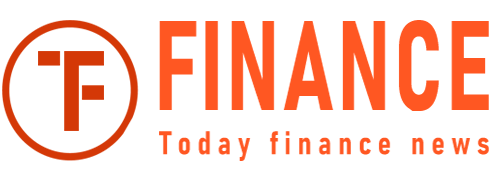Which generation do you belong in? Fortunately, there’s no hard line separating the different generations. So, I can claim to be a millennial (Gen Y) despite most literature saying that I probably belong to Gen X.
For convenience, I call anyone older than 55 years old a Baby Boomer. If you’re over 40 years old, then you belong to Gen X. If you’re over 25 years old, then you’re a millennial. Otherwise, anyone younger belongs to the Gen Z fam.
When it comes to career building, I also see some distinctions between the generations.
Filipino baby boomers built their wealth by going up the corporate ladder. Meanwhile, Gen X people are more entrepreneurial because that’s how they survived economic recessions, although most still valued building a career through employment.
Filipino millennials witnessed the birth and growth of the Internet, giving them new career opportunities in the global economy. Today’s online freelancing and tech startup industries are teeming with them. But broadly, Gen X’ers wear a lot of hats. They could be an employee by day, an entrepreneur at night, and a freelancer during weekends–they invented hustle culture.

But what about Gen Z? How is this generation that’s roaming college hallways and youngbloods of the workforce dealing with career choices and life in general? More importantly, how are they navigating through adulting and solving challenges in their personal finance?
There’s limited study in the Philippines on this area, but according to the 2022 Investopedia Financial Literacy Survey, Gen Z adults are more financially sophisticated than any previous generations globally. Another study by Raddon Research Insights found that Gen Z adults are 3x more likely to take a financial education class than millennials.
Indeed, these are interesting findings for a generation that older ones dismiss as mostly distracted and self-absorbed. It seems that there’s more to them than their witty posts on Twitter and dance challenge videos on TikTok. Here are more takeaways from the studies mentioned and my general observation of the Filipino Gen Z.

Personal Finance
Gen Z’s are more aware of the importance of saving and can save better than how previous generations did during the same age. However, a lot of them are anxious that they might still not have enough money to afford their future goals.
In my university talks, students would always ask for ways they could earn extra income. When asked why they’re interested to know, the most common answer is that they want to save money on their own for their wants and not have to ask their parents to buy them.
Moreover, I also observed that most Filipino Gen Z’s struggle in understanding the benefits of leveraging debt and credit. Much like in global studies, Zoomers (Gen Z) tend to avoid debt because previous generations gave them the impression that borrowing money has a bigger downside. This explains why most Gen Z’s I met prefer using debit cards to credit cards.
Lastly, when it comes to money management, Gen Z’s rely more on mobile apps and budgeting software. They don’t like using good, old-fashioned spreadsheets, which millennials and Gen X’ers prefer.

Investing and Entrepreneurship
A study claims that 54% of Gen Z has some form of investment. In my opinion, this is because of the proliferation of fintech and the lowering of investing barriers.
When I was in my early 20s, one has to go to the stockbroker’s office to open an account, which require a minimum deposit of P25,000. Today, Gen Z’s have access to websites, online brokers, and mobile apps where they could buy stocks and invest in funds within minutes while in the comforts of their homes. Moreover, you can now open an account in most local funds and a few stockbrokers with as little as P1,000.
Unfortunately, only 31% of Gen Z investors feel confident that they can explain how the stock market works to a friend. And while 25% of Gen Z’s around the world hold cryptocurrencies and NFTs, only a fraction could actually describe how blockchain technology works. It was mostly because of FOMO (fear of missing out) that they invested in these assets.
Lastly, Zoomers are the most entrepreneurial of all the current generation. A good 35% of Gen Z’s have plans or have already started their own business. Scrolling through Facebook and TikTok, I don’t find it surprising anymore to see a lot of Filipino Gen Z’s selling products online, offering a service, and even marketing a coaching program they developed.

Financial Knowledge
Social media plays a big factor in how Zoomers learn about personal finance. I observed that Filipino Gen Z’s do prefer the convenience and fast-paced education that YouTube and TikTok videos provide. They put less priority on reading books and attending finance seminars.
Moreover, they’re aware of the past mistakes of previous generations from the stories they read online, and research shows that 64% of them understand the importance of financial planning.
Unfortunately, they also feel overloaded with information, and would often default to just following the advice of their millennial parents about money management.
However, among all generations, Zoomers are the most comfortable at talking about money to their parents and peers. So, it seems that the Filipino culture of money being a taboo topic at the dinner table, will soon come to an end.
In a few years, all Gen Z will enter the workforce, and hopefully, there would have been more studies and we’ll have a better understanding of their career choices, financial views, and money habits, especially in the Philippines. And by then, we’ll also see the next generation, the so-called Gen Alpha, start to form their own financial personality.
Works Cited:
- Generation Z: Stepping Into Financial Independence
- 4 Points about Gen Z Financial Literacy and Habits Your Bank Needs to Know
This article also appeared in MoneySense Magazine.
What to do next: Click here to subscribe to our FREE newsletter.
Share Tweet

